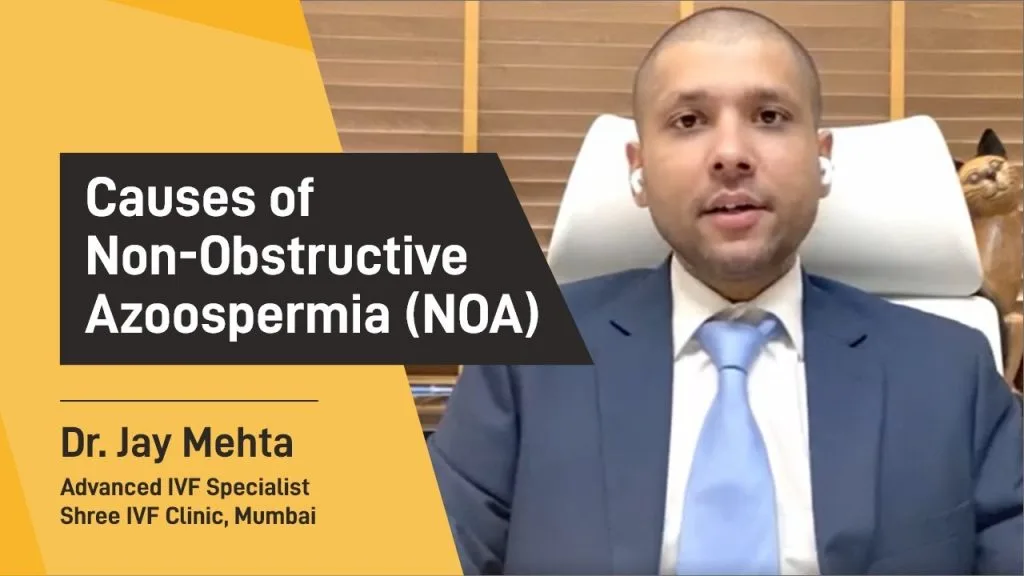Bariatric Surgery के बाद Azoospermia Treatment Effective है?
UPDATED ON 08th FEB. 2024
Bariatric surgery has become quite popular amongst the ones who are battling with obesity. Interestingly, its implications extend beyond weight loss, significantly impacting men’s reproductive health, particularly concerning azoospermia.
Let’s explore this connection and understand how bariatric surgery can aid in the treatment of azoospermia.
AUTHOR
Dr Jay Mehta
Scientific Director & IVF Specialist with 10+ years of experience
TREATMENT
CONDITION
GET IN TOUCH ON
Azoospermia after Post-Bariatric Surgery
Bariatric surgery, a well-known procedure for tackling morbid obesity, does more than just shrink waistlines. It also brings about significant shifts in a person’s hormonal milieu and overall health. This surgery, which essentially reduces the stomach’s size, has far-reaching effects beyond aiding in substantial weight loss.
The Link Between Obesity, Hormones, and Azoospermia
In obese men, a typical scenario involves an imbalance between estrogen and testosterone. Estrogen levels tend to be higher, while testosterone, the key male hormone, takes a dip. This hormonal imbalance is not just about sexual health or hair patterns; it deeply affects fertility.
Elevated estrogen alongside reduced testosterone can lead to azoospermia, a condition where there’s a complete absence of sperm in the semen, making conception a challenge.
Post-Bariatric Surgery Treatment for Azoospermia
After bariatric surgery, some men continue to face hormonal imbalances which can affect their fertility. Let’s delve deeper into the post-surgery treatment options for azoospermia.
Addressing Hormonal Imbalances
In cases where hormonal imbalances persist even after significant weight loss, medical interventions are often necessary. Doctors may prescribe a medication called Letrozole. Typically, this treatment spans around three months.
Letrozole works by decreasing estrogen levels in the body and potentially increasing testosterone levels, thereby creating a more favorable hormonal environment for sperm production. It’s like resetting the hormonal imbalance that was skewed by obesity.
Micro TESA for Sperm Retrieval
If medications like Letrozole don’t successfully treat azoospermia, the next step might be Micro TESA (Microsurgical Testicular Sperm Extraction). This procedure is a more direct approach, where sperm is retrieved directly from the testicles.
Micro TESA is particularly useful in cases where there’s a suspicion of sperm being produced in the testicles but not making it into the semen. It’s a delicate procedure that requires skill and precision, and its success rate of about 20% offers hope to many who dream of fatherhood.
The Importance of Freezing Sperm Before Surgery
For men planning to undergo bariatric surgery and who might consider fatherhood in the future, semen analysis before the surgery is crucial. This analysis gives a clear picture of the current fertility status.
If the semen samples are healthy, freezing sperm before undergoing bariatric surgery is highly recommended. Here’s why:
- Securing Fertility: Freezing sperm ensures that the option for biological parenthood remains available, irrespective of how the surgery impacts fertility.
- Precautionary Measure: Considering the potential risks of hormonal changes post-surgery, having a frozen sperm reserve offers peace of mind to those who wish to have children in the future.
A Closer Look at Hormonal Changes
The interplay between obesity, hormones, and fertility is intricate and significant. For obese individuals, excess body fat doesn’t just affect physical appearance; it deeply influences hormonal balance, which is crucial for fertility.
How Obesity Affects Hormonal Balance
- Testosterone to Estrogen Conversion: In the bodies of obese individuals, excess fat cells have the capability to convert testosterone into estrogen. This conversion skews the normal balance between these two hormones.
- Impact on Sperm Production: Testosterone is vital for sperm production. Elevated estrogen levels, due to this conversion, can lead to a decrease in sperm count and even lead to conditions like azoospermia.
- Restoration Post-Surgery: Bariatric surgery, by reducing body fat, can potentially reverse this conversion process. Lower fat levels mean less conversion of testosterone into estrogen, leading to a healthier balance between these hormones.
- Improvement in Sperm Count and Quality: As testosterone levels begin to normalize post-surgery, there’s often an improvement in both sperm count and quality. This can be a significant factor for men struggling with fertility issues linked to obesity.

5,070+
Google Reviews
393K+
subscribers
” Every individual and couple’s journey is unique, and
finding the right solutions tailored to their specific
circumstances can make all the difference “
The Bigger Picture
Understanding azoospermia post-bariatric surgery goes beyond the scope of weight loss alone. It encompasses a comprehensive transformation in health and well-being.
Holistic Health Improvements
- Beyond Weight Loss: The journey post-bariatric surgery isn’t just about shedding pounds; it’s about the overall enhancement of health. This includes a more balanced hormonal profile, which is essential for fertility.
- Management of Related Health Conditions: Obesity often comes hand-in-hand with other health issues like diabetes and hypertension. Bariatric surgery can help in better managing these conditions, contributing to a healthier body conducive to fertility.
- Enhanced Well-being: The positive changes post-surgery extend to overall well-being. Improved self-esteem, better mental health, and an enhanced lifestyle can indirectly contribute to resolving issues like azoospermia.
- A Potential Boost in Fertility: The combined effect of weight loss, improved hormonal balance, and better control of related health conditions creates a favorable environment for improving fertility, including potentially reversing azoospermia.
Wrapping Up
Bariatric surgery’s role in treating azoospermia opens new doors in the field of reproductive health. While it primarily serves as a weight loss procedure, its influence extends to improving sperm count and quality in men post-surgery. However, it’s imperative to approach this surgery with a comprehensive understanding of its possible outcomes on fertility.
For those considering bariatric surgery, discussions with healthcare providers about potential reproductive implications and preventive measures like sperm freezing are crucial. This surgery is not just a step towards a healthier weight but also a journey that could impact one’s future family planning.
As with any medical procedure, individual experiences may vary, and personalized medical advice is key to navigating this path effectively. Our experts are always here to help you out. So feel free to reach out and talk to us for any further information. Remember, information is the key to making the right decisions.
AUTHOR
Dr Jay Mehta
Scientific Director & IVF Specialist with 10+ years of experience
CONDITION
CALL US 24/7 FOR ANY HELP
GET IN TOUCH ON
Share Article on
Recommended Reading
Does Azoospermia Surgery Affect Sex Life?
Will azoospermia surgery change your sex life? In most cases, no. Understand the benefits of the procedure and how it can help restore fertility
Causes and Treatment of Non-Obstructive Azoospermia
Nonobstructive Azoospermia means no sperm in the ejaculate. It can be caused by genetics, hormones, testicular failure, or ejaculation issues
What is the procedure of MICRO TESE & how it works?
MicroTESE is a sperm retrieval surgery for men with Non-Obstructive Azoospermia, increasing their chances of conception through IVF or ICSI




